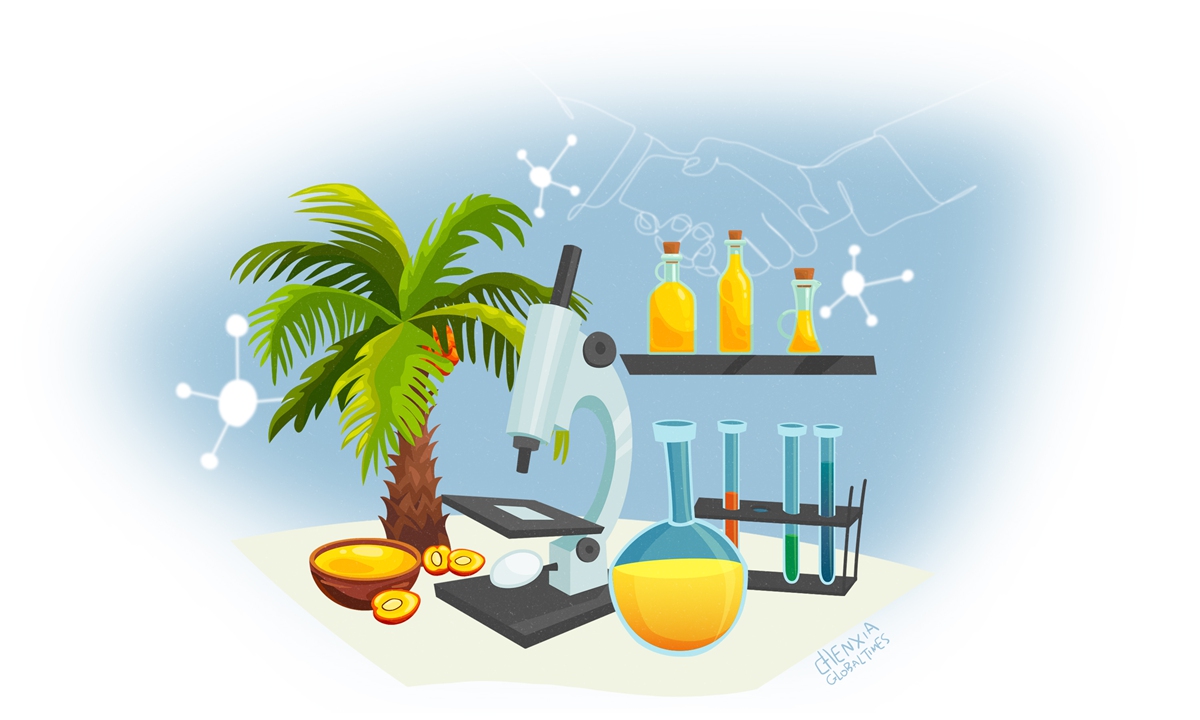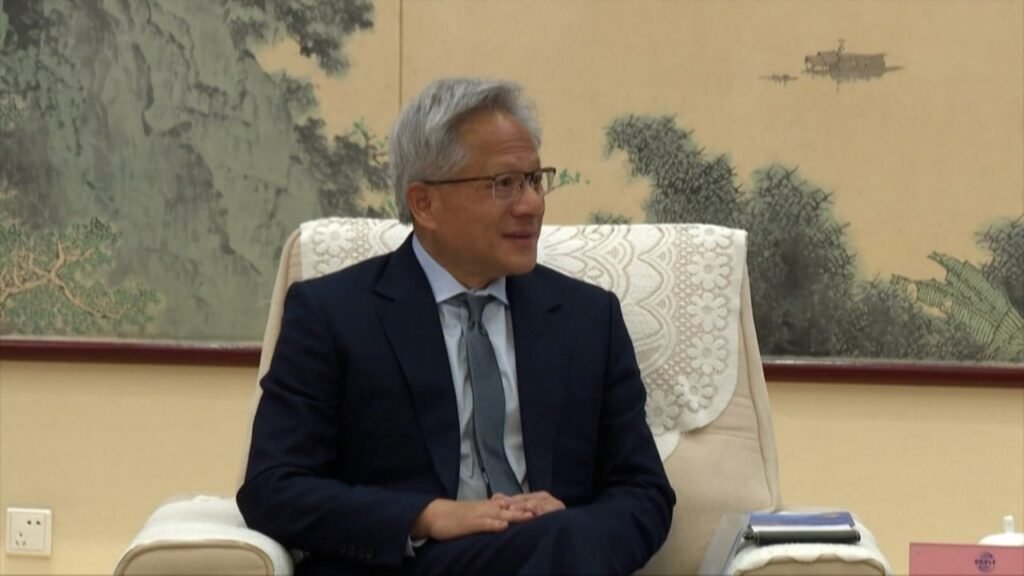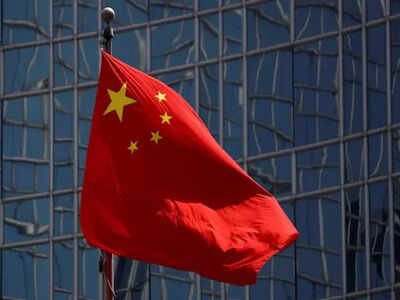
Illustration: Chen Xia/GT
The inaugural meeting of the China-Malaysia joint laboratory on oils and fats processing and safety, under the Belt and Road Initiative (BRI), was held recently, the Science and Technology Daily reported on Sunday. This first-of-its-kind laboratory between China and Malaysia within the BRI framework is expected to bolster the palm oil trade and enhance broader industrial cooperation between the two countries.
Palm oil is an important sector within the agricultural trade cooperation between China and Malaysia. Malaysia is one of the world’s top producers of palm oil, while China has become an important export market for Malaysian palm oil. This trade not only bolsters the bilateral economy but also contributes positively to the stability and development of the global supply chain.
According to an article on the website of the Malaysian Palm Oil Council (MPOC), its CEO Belvinder Sron stated that in 2023, Malaysia exported 3.05 million tons of palm products to China, predominantly palm oil and oleochemicals. Collaboration between the two countries spans the entire industry chain, from crude palm oil exports to downstream processing.
The establishment of the joint laboratory is expected to enhance the ability to address the technical challenges in the ongoing process of industrial development. In recent years, as the industry has evolved, there has been a continuous need for technological innovation to meet the ever-changing demands of the market. For instance, with the Chinese market becoming more sophisticated and its consumers increasingly prioritizing health, the MPOC reportedly anticipates a shift in demand from traditional palm oil products, such as RBD palm olein and palm stearin, to higher-value alternatives. These include carotene-rich red palm oil, specialty fats, and hydrotreated vegetable oil, which align with emerging demand trends.
The technological collaboration between China and Malaysia is poised to propel advancements in palm oil technology. According to the Science and Technology Daily, the establishment of the joint laboratory will leverage biomanufacturing technologies to boost the nutritional value and add industrial value to palm oil. This initiative is designed to bolster Malaysia’s sustainable development and enhance China’s food oil security and public health. Moreover, it will strengthen the partnership between China and Malaysia in edible oil processing and safety, establishing an international platform for scientific and technological cooperation and exchanges. This will promote international collaboration and foster talent development between the two countries.
In an interview earlier this year with the Xinhua News Agency, Malaysia’s Deputy Minister of Plantation and Commodities, Datuk Chan Foong Hin, stated that China has been Malaysia’s largest trading partner for 16 consecutive years. More than half of Malaysia’s exports to China consist of palm oil and related products. China’s advancements in smart farming, precision management, and supply chain integration serve as valuable references for Malaysia’s palm oil and other agricultural industries.
The collaboration on palm oil technology between China and Malaysia is just one facet of the wider technological cooperation within the BRI. An article in the overseas edition of the People’s Daily reported earlier this month that China and countries participating in the BRI have initiated the establishment of more than 70 joint laboratories under the BRI framework, spanning sectors like agriculture, new energy, health and wellness. This effort highlights the BRI’s broad commitment to promoting international scientific collaboration and innovation.
Technology is an important component of BRI cooperation. The joint laboratory between China and Malaysia serves as a concrete example of how this pragmatic technological collaboration is playing a multifaceted role, including but not limited to promoting trade and industrial chain development. This is beneficial for the economies and livelihoods of all parties involved.
Technological advancement is a global issue, and open collaboration is the only right path forward. Over the past decade, the BRI has played a positive role in promoting trade and the development of industrial chains. With the addition of technological cooperation, it is expected to further leverage these partnerships, unlocking the potential for growth in trade and investment, and generating exponential benefits.
The author is a reporter with the Global Times. bizopinion@globaltimes.com.cn








